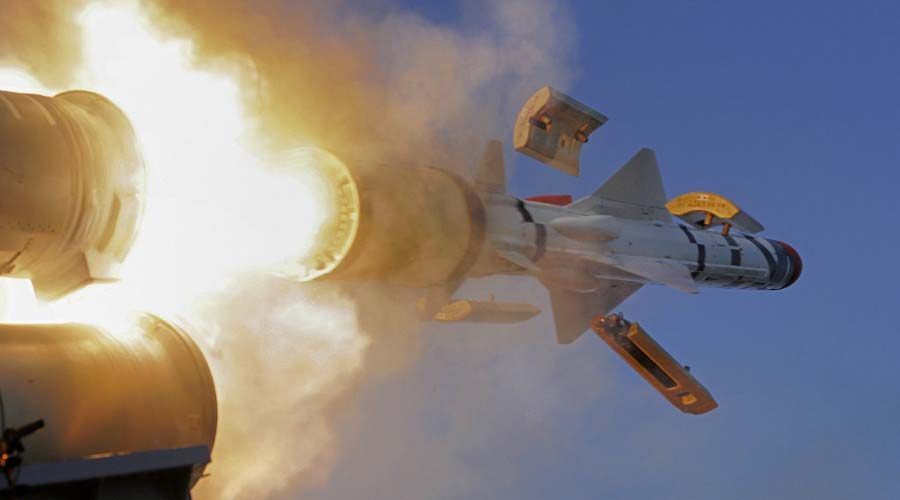
This week’s biennial defense conference in Qatar wrapped up with the country agreeing to buy new attack boats, drones, artillery systems and missiles from several other nations.
The move comes as Qatar works to modernizes its military and upgrade the security of its maritime borders.
When all the deals were added up, the country had signed agreements for QR32.58 billion, down from QR87 billion during the 2014 Doha International Maritime Defence Exhibition (DIMDEX).
Most of this year’s bill came from the ceremonial signing of a QR27.75 billion contract to purchase 24 French-made Rafale fighter jets, a deal that was first announced nearly a year ago.
The remaining QR4.83 billion included a QR2.6 billion purchase of a coastal battery system from European firm MBDA, which also agreed to sell the Qatar Emiri Naval Forces missiles worth QR240 million.
There was also a QR460.5 million agreement signed with US-based Aurora for drone sensor integration; a QR365 million worth of drones from German company Reiner Stemme Utility Air-Systems; and aQR200 million for a long-distance satellite ground imaging station from French company Airbus.
Other deals included:
- A QR174.18 million purchase of diving support boats from Nakilat Damen Shipyards Qatar;
- QR170.03 million for fast interceptor vessels from Turkish company Yonca Onuc;
- QR134.78 million for fighter and helicopter pilot training by French firm DCI;
- QR126.8 million for drone cameras from American company L-3;
- A QR95 million deal with Germany’s MTU Friedrichshafen to overhaul and maintain propulsion systems;
- QR68 million in armed attack vessels from European company Zodiac;
- QR60 million in radar gear from France’s Thales;
- A QR54.7 million agreement for drones from US firm Textron Systems;
- A three-year, QR50 million deal with US company Lockheed Martin for maintenance of C-130 military transport aircraft; and
- QR34.6 million for surveillance vehicles from South Korea’s AK & Partners.

Additionally, Qatar bought a 51 percent stake in Polish firm WKK, which specializes in manufacturing composite materials and fuselages.
It also signed a military cooperation agreement related to drones with the Chinese National Precision Machinery Import and Export Corporation and tasked Qatari firm Nakilat to train naval officers.
Most of the deals signed at DIMDEX were memorandums of understanding, which means some may not result in actual sales.
Offshore security
DIMDEX is an opportunity for defense firms to showcase their wares and for military experts from around the world to network with each other.
Due to its large coastline and massive offshore gas resources, Qatar places a big emphasis on maritime defense.
According to conference organizers, Major-Gen. Mohammed Bin Nasser Al-Mohannadi, chief of the Qatar Emiri Naval Forces, said:
“The security and economies of all states along the coast of the Arabian Gulf rely on the protection of our territorial waters and the ability to defend these waters from evolving threats is fundamental.”
Others have suggested that extensive military might is a way for Qatar to wield more influence in the region and beyond.
While Qatar’s spending at DIMDEX may have declined, analysts say the Gulf country’s overall military budget continues to rise.
Despite the decline in oil prices that have eroded government revenues, one report last year projected defense spending would rise by an average of 12 percent annually through to 2020, while another predicted that military purchases would remain at “elevated levels” in the short-term.
Thoughts?







